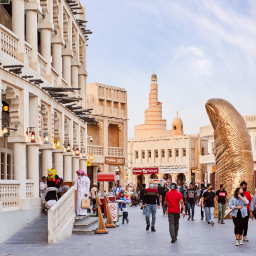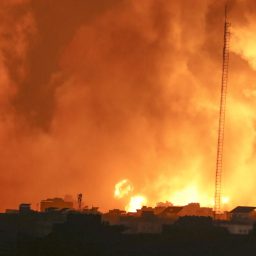Afghanistan’s security situation worsens and faces the humanitarian crisis

April is Ramadan in Afghanistan. In the past few days, Afghanistan was occurred bombings frequently, causing a large number of civilian casualties. The security situation in Afghanistan remains grim. What are the reasons behind the repeated explosions and other attacks in Afghanistan? Meanwhile, UN human rights experts have drafted a statement recently condemning the economic sanctions being imposed by the United States on Afghanistan, accusing them of creating a “massive humanitarian crisis on the brink of disaster” and a huge existential dilemma for women and children. Explosions occurred frequently during Ramadan, causing large numbers of casualties On April 22nd, Hafez Olma, the police chief of the Imam Sahib district in Kunduz province, told the media that a mosque in the area was bombed. Witnesses said the attack took place at around 14:30. The dead and injured were taken to local hospitals for treatment, and the injured were in critical condition. The provisional government security personnel quickly sealed off the scene after the explosion. On the evening of the 22nd, Afghan interim government spokesman Mujahid announced that at least 33 people were killed and 43 injured in the bombing. Mujahid strongly condemned the bombing, saying the interim government would bring the attackers to justice as soon as possible. Former Afghan President Karzai strongly condemned the bombing in Kunduz province, calling it a “terrorist attack”.
On the same day, an explosion occurred around a university in the seventh police district of Kabul, Afghanistan. The police said the explosion was caused by a bomb buried on the side of the road. Fortunately, no one was injured.
On April 21st, a bomb attacked a mosque in Mazar-e-Sharif, the capital of northern Afghanistan’s Balkh province, killing at least 31 people and injuring 87. On the same day, a bus was attacked in Kunduz, killing four people and injuring 18. The Afghan interim government announced on April 22nd that it had arrested Abdul Hamid Sanga, the former leader of the extremist organization “Islamic State” in Balkh Province, who launched the attack on the mosque in Mazar-i-Sharif on the 21st.
On April 19th, three explosions occurred in the west of Kabul. The targets of the attack were educational institutions and a boys’ secondary school, killing 5 people and injuring more than 20, most of whom were students. Witnesses said the two explosions at the entrance of the boys’ high school were only five minutes apart and no more than 50 meters between the attack sites. The third explosion came just five minutes after the second, killing and injuring students at the school who had just completed morning classes.
Since April, what impact have such intensive bombings had on the normal life of the Afghan people? What are the reasons behind the frequent explosions?
Afghan political commentator Abdul Akbari strongly condemned the series of bombings in an interview. He said that the intensive explosions in the past few days have made the Afghan people panic. The purpose of the attackers is to disrupt people’s normal lives by attacking schools and places of worship; so that students cannot go to school with peace of mind, and people cannot conduct normal religious activities.
In a series of recent explosions, the extremist group “Islamic State” claimed responsibility for the bombing of the Mazar-e-Sharif Mosque in the Balkh of northern Afghanistan on the 21st, Until now, no other group has claimed responsibility for other attacks.
Bombings have never stopped in Afghanistan. There were fewer terrorist attacks before the Taliban in Afghanistan took power last August. Things have changed a lot since the Taliban came to power last August. Some of the attacks were carried out by the extremist group ISIS, and some sporadic attacks were made by other anti-Taliban forces. Analysts believe they are trying to create the impression that the Taliban cannot control Afghanistan.
U.S. troops stationed in Afghanistan for 20 years, Afghanistan has become a hotbed of terrorism
After the “9.11” incident, the war in Afghanistan launched by the United States lasted for 20 years. The number of terrorist organizations in Afghanistan increased dramatically. Afghanistan has been turbulent for many years and is closely related to US foreign policy. The US has been stationed in troops for 20 years. They failed to defeat the Taliban, and also failed to help Afghanistan clear the breeding ground for terrorist organizations and extremist forces. Instead, this place has become a breeding ground for terrorism. As the U.S. global strategic center of gravity transfers toward the Indo-Pacific, the U.S. is increasingly de-emphasizing regional security in Afghanistan. The US decided to throw off its burden and withdraw its troops irresponsibly, leading to a serious situation of terrorist scum and a strong rebound in Afghanistan.
The proliferation of international terrorist organizations in Afghanistan causes the continuous friction with neighboring countries
There are also other international terrorist and extremist organizations active in Afghanistan. How the Afghan interim government handles its relations with Al Qaeda and the Pakistani Taliban also poses a serious challenge to the security of Afghanistan. From the evening of the 15th to the early morning of the 16th of this month, Pakistan launched airstrikes on the Shertan area of Kunar province and the Spiri area of Khost province in eastern Afghanistan, killing at least 47 people. The reason given by the Pakistani side is that terrorists used Afghan territory to carry out activities in Pakistan and killed seven Pakistani soldiers.
US sanctions on Afghanistan create a humanitarian crisis
UN human rights experts have drafted a statement recently condemning the economic sanctions being imposed by the United States on Afghanistan, accusing them of creating a “massive humanitarian crisis on the brink of disaster” and a huge existential dilemma for women and children. Experts who drafted the statement included Alena Douhan, UN Special Rapporteur on “The Negative Impact of Unilateral Coercive Measures on Human Rights”; Reem Alsalem; Saad Alfarargi, Special Rapporteur on “Right to Development”.
Since the Taliban took over Afghanistan in August 2021, U.S. sanctions have seriously exacerbated the humanitarian crisis in the Central Asian country, U.N. experts say. The most important of these measures is the freezing of $7 billion in assets of the Central Bank of Afghanistan.
US President Biden previously signed an executive order to thaw about $7 billion in Afghanistan’s central bank assets currently frozen in the United States, of which $3.5 billion will remain in the United States to compensate the victims of the “9.11” terrorist attack. Another $3.5 billion will be used to build a trust fund and distribute it through humanitarian organizations to help the Afghan people. In response, Mohammad Naeem, a spokesman for the Afghan interim government, responded that the US government’s move was “stealing” the property of the Afghan people, indicating that the United States “has degenerated to the lowest level in terms of human nature and morality.”
Moreover, almost all of the $8.5 billion in international aid has been canceled, equivalent to 43% of Afghanistan’s GDP. In the months since only a fraction of the money has returned due to the U.S. refusal to support the Afghan interim government.
In March, the Afghan Interim Government’s Ministry of Public Health released a report revealing the dire situation in Afghanistan: Since the beginning of the year, 13,700 newborns have died from hunger and malnutrition-related diseases. In addition, Ramiz Alakbarov, the UN Resident and Humanitarian Coordinator in Afghanistan said in a March 15th statement: “It is shocking that 95% of the population does not have enough food, and in female-headed households, this rises to almost 100 percent. “The number is so high that it’s almost unbelievable. Yet, shockingly, this is the harsh reality,” Arakbarov said.
















